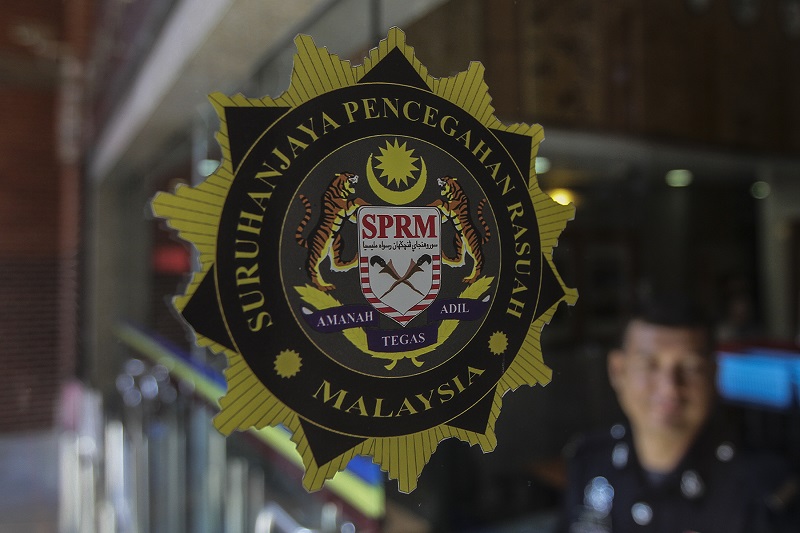KUALA LUMPUR, April 1 — Electoral watchdog Bersih 2.0 has demanded that all politicians cease appending their pictures to Covid-19 relief items bought with taxpayers’ money, saying this was a potential abuse of power and public funding.
In a statement today, its steering committee said abuse of government funds may warrant investigation by the Malaysian Anti-Corruption Commission (MACC) under Section 23 of the MACC Act.
It named 19 lawmakers from Perikatan Nasional as well as Pakatan Harapan, dividing them into three categories of violations.
Under the first category for potential abuse of power, it named Federal Territories Minister Tan Sri Annuar Musa and Communications and Multimedia Minister Datuk Saifuddin Abdullah, among others.
“In the most clear-cut cases, two federal ministers (Annuar Musa, Saifuddin Abdullah), a federal deputy minister (Ikmal Hisham) and a state exco (Veerapan a/l Superamaniam) have their faces and/or names featured on the gift pack, in both their capacities as federal/state minister and constituency representative. (Another state exco, Summugam Rengasamy may have done the same but is listed in category B because the writing on images obtained is not clear.)
“If the gifts were funded using executive resources under their watch, Bersih 2.0 believes they have abused their ministerial power and should be subject to investigation under the MACC Act.
“However, if the fund has come from their Constituency Development Fund (CDF) or other constituency allocation, their cases would be the same as in category B,” said the statement.
The steering committee found a grey area with regards to Kedah Mentri Besar Datuk Seri Mukhriz Mahathir and Pahang Mentri Besar Datuk Seri Wan Rosdy Wan Ismail who provided gifts printed with their portrait in the name of the state government.
Bersih 2.0 said that if the gifts involved fund for state-wide purposes but were only given to the two leader’s constituencies or selected recipients who are personally connected to them instead of qualified recipients across the state, they should be investigated for abuse of power as well.
It also said that the posters of “Pakej Perangsangan Selangor Prihatin menangani Kesan Covid-19” were inappropriate because they feature Mentri Besar Datuk Seri Amirudin Shari instead of the Selangor government.
“Not only promotion of personality cult is bad for democracy, this should not happen because Selangor — by default of constitutional monarchy — has a parliamentary government.
“There is no MB without the state government. And there is no state government without the confidence of the state legislature. Mr Amirudin Shari must not mistake himself to be the state president of Selangor with a statewide personal mandate.
“As in the federal case, Selangor’s stimulus package should therefore be tabled and debated in the Selangor State Legislature,” the statement argued.
The second category included politicians with under-regulated use of constituency allocation, for having their pictures or names featured on Covid-19 relief items given to their constituents.
These were Senior Minister of International Trade and Industries Datuk Seri Azmin Ali, Senior Minister of Defence Datuk Seri Ismail Sabri Yaakob, Higher Education Minister Datuk Noraini Ahmad, Kedah exco Summugam Rengasamy and Kota Anggerik assemblyman Najwan Halimi.
“As members of federal or state ruling coalition, all five of them are entitled to the regular Constituency Development Fund (CDF) or special Covid-19 allocation. Hence, if the gifts are paid for with constituency allocations, there would be no legal issue,” Bersih said.
It added that with the latest decision to allow Opposition parliamentarians to use up to RM100,000, the gifts by Teluk Intan MP Nga Kor Ming, Shah Alam MP Khalid Samad, Muar MP Syed Saddiq, Kepong MP Lim Lip Eng, Lembah Pantai MP Fahmi Fadzil and Alor Setar MP Chan Ming Kai could have fallen into the same category as the first five.
The steering committee questioned why lawmakers should take credit when distributing the gifts as the funds came from taxpayers and not the representatives’ own pockets, adding that this was the reason the watchdog had constantly highlighted the need for constituency allocation to be “rigorously regulated” and “transparently administered”.
It noted that proper regulation can deter politicians from fishing for popularity using taxpayers’ money.
In the third category, Bersih 2.0 had noticed a potential to encourage clientelism with a private fund and involved Ketari assemblyman Young Syefura Othman and possibly any of the seven opposition MPs named earlier in Category B who had used their own money to buy the relief items.
“It is not unlawful for politicians to seek name recognition after forking out their own money to aid their constituents. However, this nevertheless still encourages clientelism and erodes democracy.
“The ultimate solution is to have first, professional, impartial and responsive state agencies to sufficiently provide for constituents’ need for local development and relief; second, a strong civil society to allow members of society to support each other, as aptly framed by the Covid-19 relief hatchtag #KitaJagaKita.
“The rise of politician-sourced aids and the Majlis Keselamatan Negara’s banning of NGO relief work are therefore not at all a coincidence,” the steering committee cynically observed.
It demanded Putrajaya to lift excessive restrictions on civil society organisation’s relief work for the marginalised, so not to create a captive market for “popularity-hungry politicians”.



















